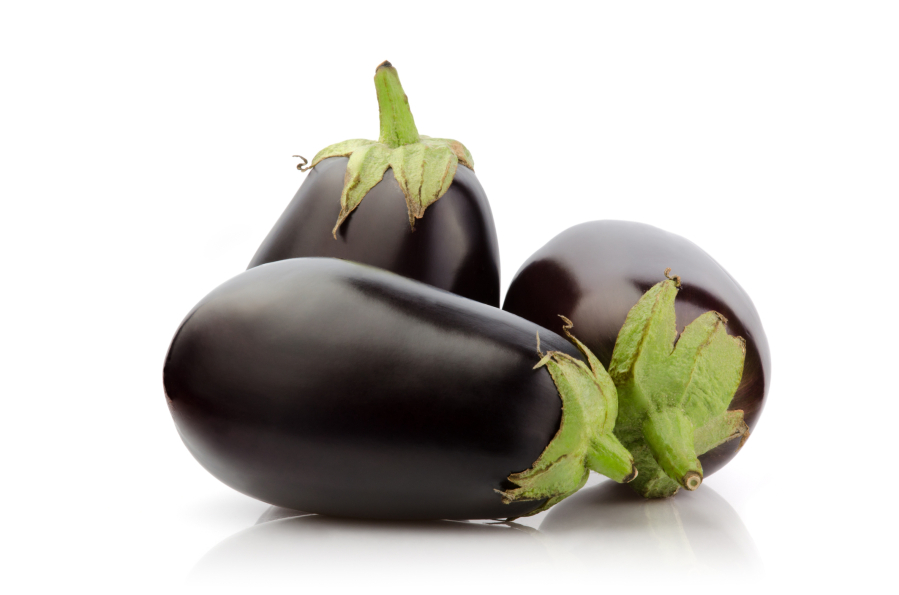Eggplant is a must for fans of outdoor grilling. Long prized for deeply purple, glossy beauty and unique taste and texture, eggplants are available in markets throughout the year, but they are at their best from August through October, when they are in season.
Eggplants belong to the nightshade family of vegetables, which also includes tomatoes, bell peppers and potatoes. They grow in a manner much like tomatoes, hanging from the vines of a plant that grows several feet in height. While varieties do range slightly in taste and texture, one can generally describe the eggplant as having a pleasantly bitter taste and spongy texture.
Eggplant is a very good source of dietary fiber, vitamin B1, and copper. It is a good source of manganese, vitamin B6, niacin, potassium, folate, and vitamin K. Eggplant also contains phytonutrients such chlorogenic acid.
Choose eggplants that are firm and heavy for their size. Their skin should be smooth and shiny, and their color, whether it is purple, white, or green, should be vivid. They should be free of discoloration, scars and bruises, which usually indicate the flesh beneath has become damaged and possibility decayed.



